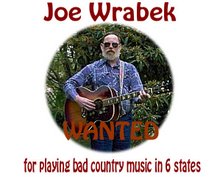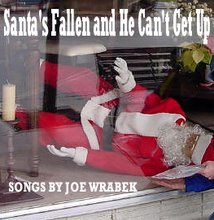Still going through train songs… Thoughts below are not complete (and neither is the list—I haven’t digested or tried to play everything yet).
There seems to be a paucity of themes running through train songs, and I’m not sure why. There are a lot of Gospel songs, of the “bound for glory” genre, and most of them are quite good. Trains are a good religious metaphor: a train almost defines “straight and narrow,” has a definite destination, and is rather unstoppable once it gets going. I probably wouldn’t want to do more’n two or three, though, because I don’t want our Train Set to sound like it was all Gospel songs.
Katherine Fear’s “Glory Train” is an ideal example of the genre—and neat because the verses have an unexpected chord progression. One of the best-written Gospel train songs I know is actually public domain—“Life’s Railway to Heaven.” (It was copyrighted by the patent-medicine-salesman-turned-revivalist-preacher who stole the song from a black church, but he did that in 1918, and the copyright’s run out.) It’s a long song, though; five verses (counting the one I wrote for the Dodson Drifters) of 8 lines each, and five choruses (and you have to have one or two lead breaks). But I can sing it.
There are the “history” songs, mostly about train wrecks (and most of those are old songs, because train wrecks don’t happen much any more); we’ll do one, “Wreck of the Old 97” (with the verse Johnny Cash added, and the one I changed)—and we’ll also do the 1910 song that prompted it, “Steamboat Bill” (in which, after Bill’s boat explodes, his widow tells the kids, “Next time, we’re marryin’ a railroad man”).
My “Tillamook Railroad Blues” is nostalgia—a quasi-sad snapshot of the “train on life support.” There is some nostalgia these days about the end of railroading, but it doesn’t seem to take a lot of different forms. There are perhaps opportunities there that aren’t being taken advantage of: yes, we’re sad to see it all go—but why? I’m not sure even “Tillamook Railroad Blues” answers that question. Something (or someone) should.
There are the “oddities.” (I like oddities.) Christopher Smith’s “California Zephyr” is about a baby being born on a train (supposedly a true story), delivered in a nice ragtime style. ”The Lightning Express” (an old bluegrass traditional), about a kid traveling to see his dying mother—and getting kicked off the train because he doesn’t have the fare—was a Dodson Drifters staple; delivered Grateful Dead style, it’s one of the happiest-sounding songs about death I’ve ever run across. Jimmie Rodgers’ “Blue Yodel No. 2 (T for Texas)” is a lost-love blues, with some great punch lines; it works real well as rock ‘n’ roll.
A real odd one I ran across—it’s British, and apparently public domain—is something called (I think) “The Last Saskatchewan Pirate.” Yes, if you’re going to embark on a career as a pirate in the board-flat wheat fields of Saskatchewan, you’re going to be “sailing” a train, not a boat, and the “gold” you’re going to be stealing is going to be some of those “amber waves of grain.” It’s cute. The moral—never expressed outright, of course—is that yes, you can follow your dreams, but be prepared to make compromises. I haven’t found sheet music (or a recording) for this one; I might have to invent something myself.
What else can you do with trains? “The Last Saskatchewan Pirate” suggests the field is really wide open—but I don’t see many people out in the field. Stan Good sent me lyrics (which I’m not sure I can musicate) about a relationship “headed for a train wreck”; the economy, or what’s left of it, appears headed for one, too. A lot of people are upset about the “gravy train,” also—though there’s a lot of disagreement about who’s on it. And there was that old urban legend, popularized by Huddie Ledbetter, that if you stood in the light of an oncoming train at midnight, you could get out of jail. Is that why so many people are stuck in prison? The train doesn’t come by any more?
Writers’ Guild Thursday night; might practice Friday with Larry and Charlie for the Rocktoberfest gig—can’t get the whole band together until just a couple of nights before the gig. And the Train Set to figure out.
Joe
WELCOME...
This blog is the outgrowth of a songwriting workshop I conducted at the 2006 "Moograss" Bluegrass Festival in Tillamook, Oregon. It presumes that after 30-odd years of writing and playing music, I might have something to contribute that others might take advantage of. If not, it may be at least a record of an entertaining journey, and a list of mistakes others may be able to avoid repeating.
This blog is intended to be updated weekly. In addition to discussions about WRITING, it will discuss PROMOTION--perhaps the biggest challenge for a writer today--as well as provide UPDATES on continuing PROJECTS, dates and venues for CONCERTS as they happen, how and where to get THE LATEST CD, the LINKS to sites where LATEST SONGS are posted, and a way to E-MAIL ME if you've a mind to.
Not all these features will show up right away. Like songwriting itself, this is a work in progress. What isn't here now will be here eventually. Thank you for your interest and your support.
Subscribe to:
Post Comments (Atom)



No comments:
Post a Comment